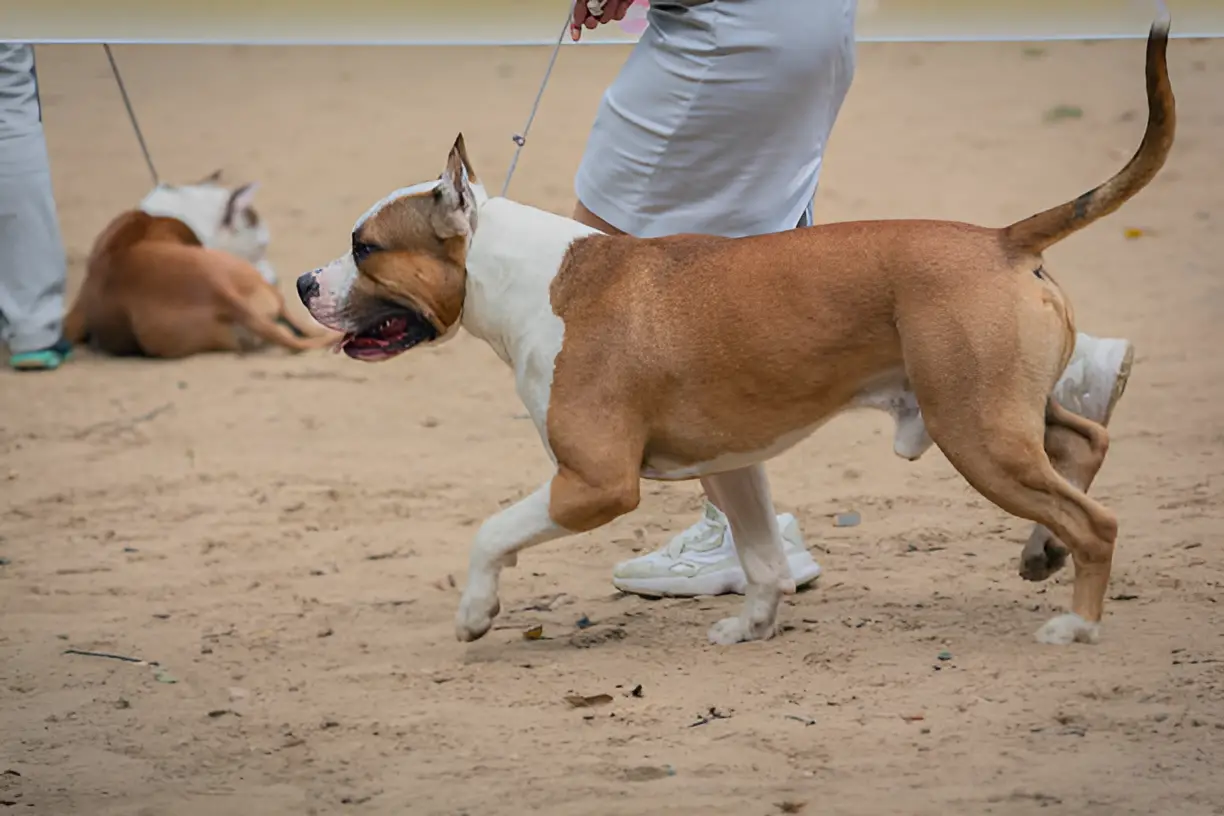No, American Bullies are not inherently aggressive; they are known for their gentle, loyal, and affectionate nature. American Bullies are a relatively new breed, developed in the United States in the 1990s. Despite their muscular build and intimidating appearance, these dogs are bred to be companion animals with a friendly and loving temperament. This comprehensive guide will explore the characteristics of American Bullies, debunk common myths about their aggression, and provide insights into their care and training.
Understanding the American Bully Breed
American Bullies were created by crossing American Pit Bull Terriers, American Staffordshire Terriers, and other bully breeds. The goal was to develop a dog with the physical traits of a bully breed but with a more stable and gentle temperament. Here are some key characteristics of the breed:
Physical Appearance: American Bullies are known for their muscular build, broad chest, and strong jaw. They come in various sizes, including Standard, Classic, Pocket, and XL.
Temperament: Contrary to their tough appearance, American Bullies are known for their gentle and affectionate nature. They are loyal, loving, and make excellent family pets.
Intelligence: American Bullies are intelligent dogs that are eager to please their owners. This makes them relatively easy to train with the right approach.
Debunking the Aggression Myth
The misconception that American Bullies are aggressive likely stems from their physical appearance and their relation to other bully breeds. However, aggression is not a characteristic trait of the American Bully. Here are some reasons why this myth persists and the truth behind it:
Appearance: The muscular build and strong jaw of American Bullies can make them look intimidating. However, these physical traits do not correlate with aggression.
Misunderstanding of Bully Breeds: Bully breeds, in general, have a reputation for being aggressive due to their history and media portrayal. This has unfairly influenced perceptions of the American Bully.
Behavioral Issues: Any dog can exhibit aggressive behavior if not properly trained or socialized. Aggression in American Bullies is often the result of poor training, neglect, or mistreatment rather than an inherent trait.
The True Nature of American Bullies
American Bullies are bred to be companion animals with a stable and friendly temperament. Here are some key aspects of their true nature:
Loyalty and Affection: American Bullies are incredibly loyal to their families and thrive on human interaction. They are known to be affectionate and enjoy spending time with their owners.
Good with Children: American Bullies are generally good with children and can be very gentle and patient. Their protective nature makes them excellent family pets.
Socialization: With proper socialization, American Bullies can get along well with other dogs and pets. Early socialization helps them develop into well-rounded adults.
Training and Socialization
Proper training and socialization are crucial for ensuring that American Bullies develop into well-behaved and balanced dogs. Here are some tips for training and socializing your American Bully:
Positive Reinforcement: Use positive reinforcement techniques, such as treats and praise, to encourage good behavior. Avoid punishment-based methods that can cause fear and anxiety.
Early Socialization: Expose your American Bully to various people, animals, and environments from a young age. This helps them develop confidence and reduces the likelihood of fear-based aggression.
Consistency and Patience: Be consistent with your training commands and routines. Patience is key, as American Bullies can be stubborn and require time to learn new behaviors.
Health and Care
American Bullies are generally healthy dogs, but they can be prone to certain health issues. Here are some common health concerns and care tips:
Hip Dysplasia: This genetic condition affects the hip joints and can cause pain and mobility issues. Regular veterinary check-ups and maintaining a healthy weight can help manage this condition.
Skin Allergies: American Bullies can be prone to skin allergies, which can cause itching and discomfort. Regular grooming and a balanced diet can help keep their skin healthy.
Exercise Needs: Ensure your American Bully gets plenty of exercise to prevent obesity and keep them mentally stimulated. Daily walks, playtime, and interactive toys are essential.
Conclusion
In conclusion, American Bullies are not inherently aggressive; they are known for their gentle, loyal, and affectionate nature. Understanding the true characteristics of the breed, debunking common myths, and providing proper care and training can help ensure that American Bullies develop into well-behaved and loving companions. By following the tips provided and addressing common concerns, you can enjoy a positive and fulfilling relationship with your American Bully.
The photo featured below the post headline is Credit: Andrey Kanyshev/istockphoto
I hope you find this post helpful and informative. If Yes’ feel free to share it with your friends!
Frequently Asked Questions
Are American Bullies aggressive?
No, American Bullies are not inherently aggressive. They are known for their gentle, loyal, and affectionate nature.
What are the key characteristics of American Bullies?
American Bullies are muscular, intelligent, and loyal dogs that make excellent family pets. They come in various sizes, including Standard, Classic, Pocket, and XL.
How can I ensure my American Bully is well-behaved?
Use positive reinforcement, provide early socialization, and be consistent and patient with training.
What health issues are common in American Bullies?
Common health issues include hip dysplasia and skin allergies. Regular veterinary check-ups and a balanced diet can help manage these conditions.
Are American Bullies good with children?
Yes, American Bullies are generally good with children and can be very gentle and patient.

